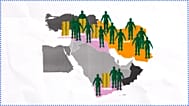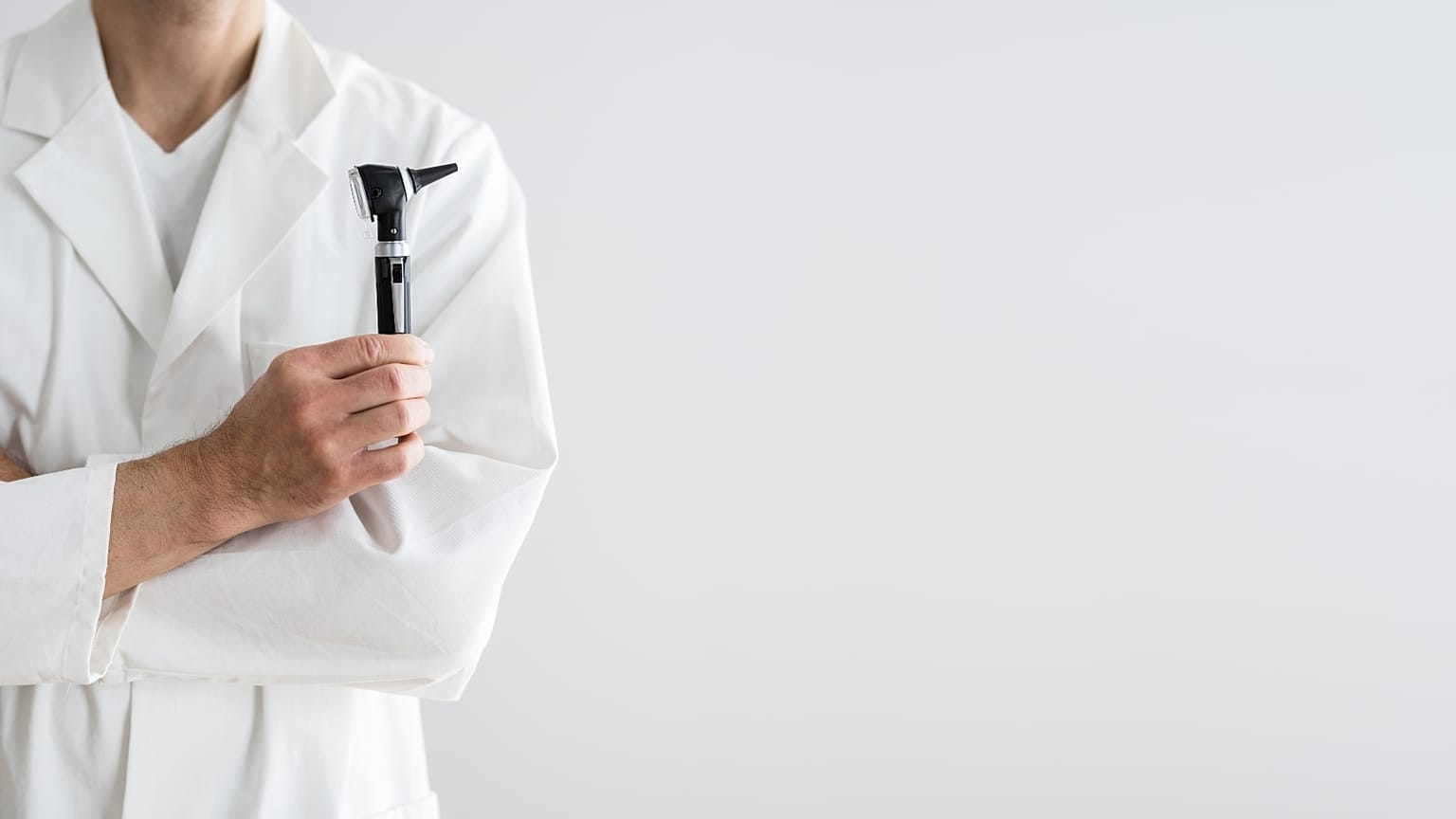In Germany, one in four doctors are leaving the profession. What is being done to nurse the healthcare system back to health?
Germany is regarded by many to be a country of efficiency.
 ADVERTISEMENT
ADVERTISEMENT
 ADVERTISEMENT
ADVERTISEMENT
People in other countries often assume that German trains depart on time, the Internet runs at a normal speed and the healthcare system is flawless. But for the latter, at least, the data shows they are wrong.
December saw a closure of scores of doctors' practices across Germany, as many went on strike to protest worsening working conditions.
But it's not just German doctors who are angry; Slovenian and Portuguese doctors have also walked off the job. In Italy, doctors and nurses protested in December. And in January, British junior doctors began their longest industrial action in the history of the UK's National Health Service (NHS).
Germany’s healthcare woes come as its coalition government grapples with a range of domestic issues, including farmers’ strikes, a sluggish economy, and a rising threat from the far-right.
The German health minister Karl Lauterbach met with members of the medical association to listen to concerns and make a concrete plan in January. But many of those professionals are sceptical that things will change.
One of them is Dr Dirk Heinrich, the chairman of the Association of Resident Doctors, who told Euronews Health after the meeting that many doctors are very angry, and that if solutions are not found as quickly as possible, the situation will continue to deteoriate.
"The shortage of doctors is a persistent problem. Even with the best measures, we won't be able to completely solve it. We need to carefully consider how to better guide patients through the system," he said.
Retirement and finding successors
Around 80,000 doctors in Germany are over the age of 60. Many doctors express concern that when they retire, finding a successor to their practices will be a very tough job.
According to gynaecologist Dr Peter Rott, who has a practice in Berlin, the medical profession has become very "unattractive" and last year 150 general practitioner practices simply closed because they could not find anyone else to take over the practices.
In addition, there is the significant area of outpatient or general practitioner care. Over the next three years, an estimated 5,000 to 8,000 general practitioner practices are expected to close, mostly due to retirement.
What is also needed is more mindful digitalisation of processes, medical student Laurin Gerdes suggested, by, for instance, embracing artificial intelligence (AI) solutions.
“New methods need to be developed, such as integrating retired physicians, for example, through telemedicine or other technologies, or improving compensation to compensate for the shortage of personnel or migration through new staff,” he added during a Zoom interview with Euronews Health.
"I think these are the major challenges that need to be addressed, and we need to face them urgent".
Embracing AI and digital solutions
Peter Schreiber, medical student and chairman of the students in the Hartmannbund, a professional association that represents German doctors, said he would like to see more AI "in outpatient settings beyond radiology, for example, to reduce redundant tasks—especially in bureaucracy. We enjoy the actual medical work; that's why we studied it or are studying it".
But Rott said AI technology simply isn’t developed enough. He says that the processes are time-consuming and that also a patient needs to physically come to the practice themselves and present their insurance card in person every quarter of a year.
Even if repeat prescriptions could be administered online, the card still needs to be handed over, which consumes more urgently needed appointments.
Another complaint of the doctors at the meeting with the German health minister was that last year, Lauterbach overturned the new patient regulation, meaning doctors now lose out on their “new patient bonus”.
This has led to many practices refusing to take new patients as they are already at capacity with their existing ones.
New appointments, according to Rott, are more time-consuming because they require the doctor to get to know a patient’s medical history.
Combatting low pay
Rott also explained that most doctors are self-employed in Germany. This means they bear all the costs for medical assistants, including receptionists and medical equipment.
He said he pays €40,000 per month for these assistants. Since self-employed doctors receive their compensation later once accounts have been settled, he also said that after 50 per cent in tax deductions, then approximately €70,000 net per year remains.
"I don't want to complain; it's not a bad income, but ultimately, I can't give my medical assistants a higher income from that," he said.
Rott also said he loses 20 per cent of his salary, due to the reimbursements coming months later. He finds it "unfair" after so many years of training.
Lauterbach promised at the crisis summit meeting with doctors in Germany that they would now be paid in full again.
Medical equipment such as ultrasounds are covered by loans taken out in the doctor’s name. They cost tens of thousands - if not hundreds of thousands - of euros.
Several doctors Euronews Health spoke to complained about the salary, with many criticising Lauterbach for suggesting they make €146,000-230,000 per year, or higher.
Rott said this only applies to specialists such as radiologists and orthopaedists.
Unbearable working conditions
Hein warned that the working conditions for doctors are becoming unbearable for many doctors.
"The care system will collapse to an extent that we cannot recover from, possibly even within this year. Doctors have told me that they think things will get really bad in the next 3 to 5 years".
The medical system is in urgent need of reform but all the doctors Euronews Health spoke with were pessimistic about the future of medicine in Germany.
Many said they knew medical students who personally went to other countries including Denmark, Sweden, and Switzerland because working conditions are better – including shorter hours for higher pay.
As Rott succinctly puts it, "how much is our health worth?"

















